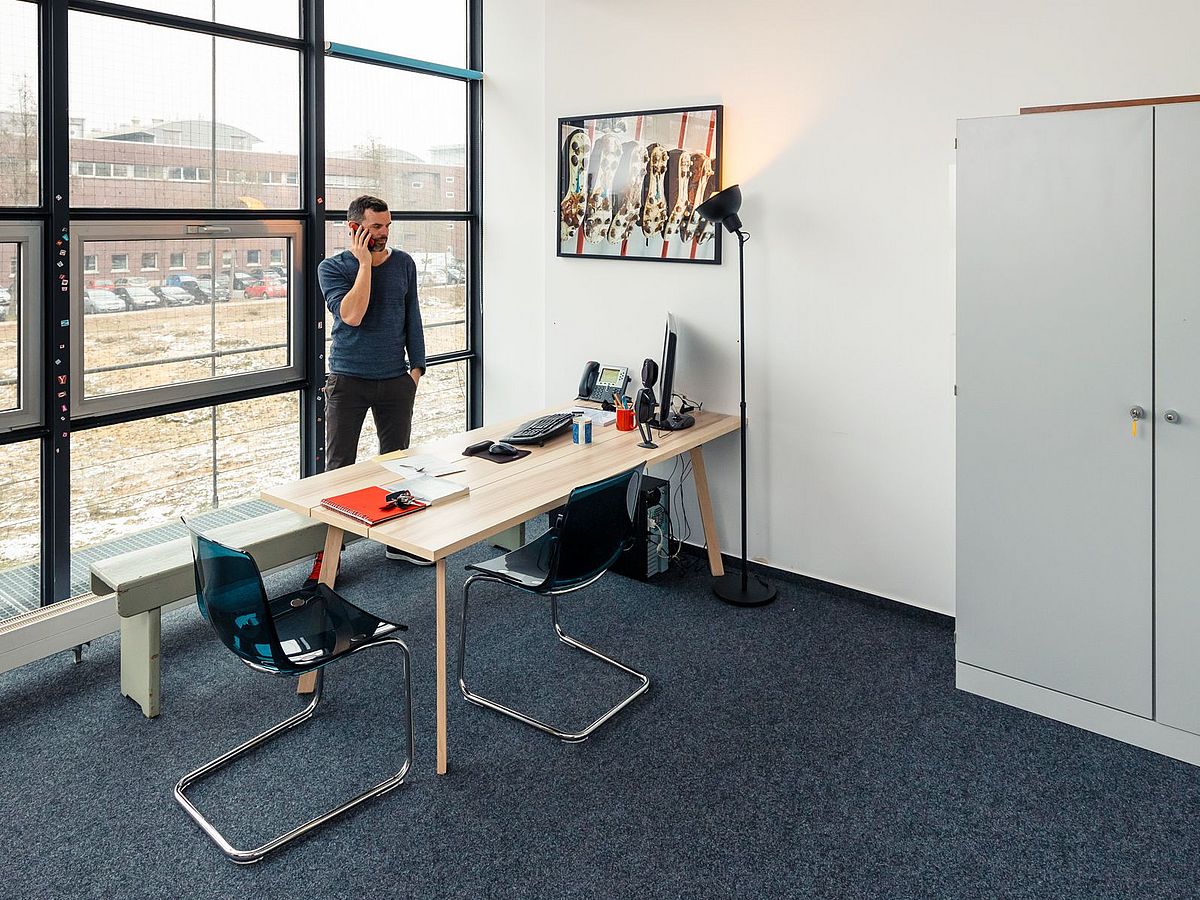“Shaping Bremen”
Whether in civic education or political consulting as part of digitization: political scientist Andreas Klee and computer scientist Juliane Jarke leave the university to hear from the citizens of Bremen themselves what motivates them and how they see the way people interact in society. Their objective is to enable people to make positive changes to how people interact in Bremen.

“If we are researching a societal phenomenon, then we have to talk to the people: what motivates them, how they envision societal developments, and what is pressing to them with regard to political decisions,” says Professor Andreas Klee, director of the Centre for Labour and Political Education (zap), where transfer is seen as a matter of course. The research processes are designed so that research is not conducted on people, but rather with them – science on a level playing field.
Using various models, Klee regularly collects the experiences of the citizens: in the “Demokratiewerkstatt” (“democracy workshop”), he and his team work with young people to develop concepts relating to how members of society interact. As part of the “Bremer Leben” project, students of vocational schools create working biographies of, among others, workers at the port in Bremen. For Klee, a discussion event with the Bremer Tafel food bank in Gröpelingen was a particularly educational experience, because here the communication actually failed for once. “I was literally not understood, which made clear to me how easy it can be to just talk over people’s heads,” says Klee. In his opinion, this realization is very important for successful transfer of innovation, knowledge, technology, etc. “It’s just not easy to make clear that, although we operate in completely different worlds, we have something to say to each other that could be important for both of us.”

Bremen’s social and political sciences are also involved and in demand on a national level: the Federal Ministry of Education and Research is funding the establishment of an institute for social cohesion (Institut für gesellschaftlichen Zusammenhalt – IgZ). In Bremen, under the leadership of the university’s SOCIUM Research Center on Inequality and Social Policy, research is being conducted on the middle class as a central group of society. The Centre for Labour and Political Education (zap) is also taking part and thus has the opportunity to research current societal developments as part of a large national research association.
“The IgZ has been tasked with generating concrete, applicable results. This includes both publishing recommendations for policymakers as well as finding new ideas for the work of institutions for civic education,” explains Klee. “In Bremen, we are therefore creating contact points at central locations where citizens can interact and exchange ideas. In this way, they generate knowledge for researchers that is evaluated and fed back into society in the form of recommendations for political action.”

Computer scientist Dr. Juliane Jarke from the Institute for Information Management Bremen (ifib) at the university also works together with citizens of Bremen. “It’s important here, too, to approach people as equals,” she says. Technology needs to be developed not only for, but also with future users. Using seminars on participatory software design, the computer scientist also conveys this understanding in her teaching. “Technology is not neutral and objective – it’s made for people by people. For this reason, it’s best to also include people in the development of technology. We try to raise awareness for this among our students.”
As part of the “Mobile Age” project, for example, Jarke and her team developed the digital city guides “Schöne Spaziergänge” (“pleasant strolls”) and “Schöne Orte” (“pretty places”) together with older residents of Hemelingen and Osterholz. The guides are now available online for everyone. What is special about the project is that the senior citizens are not only involved in testing the software, but as early as in the planning and development phases. The decisive factor for an app is not only that it is easy to use – it also has to be practical. “An app can be very user-friendly, but if it doesn’t enrich my everyday life, then I won’t use it,” notes Jarke.
The computer scientist sees her role as an academic in making research findings useful for the city and its citizens: “We make our way around the world and see things that would also be great for Bremen. Thanks to research projects, we also have the opportunity to further develop the city of Bremen.” Jarke also feels a strong connection to Bremen in her private life. She considers the city a creative place where many people live who have a desire to design – and she is glad that she can contribute to this through her work.
